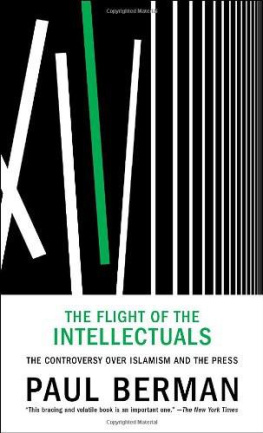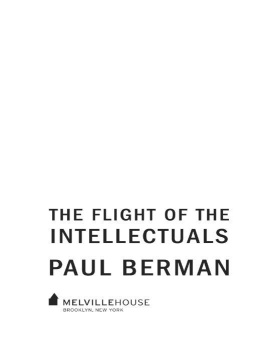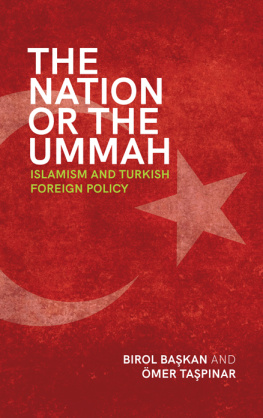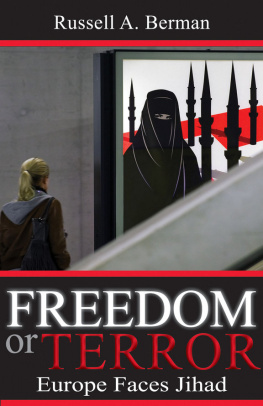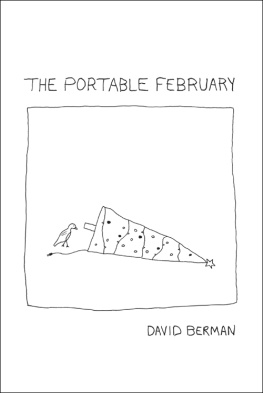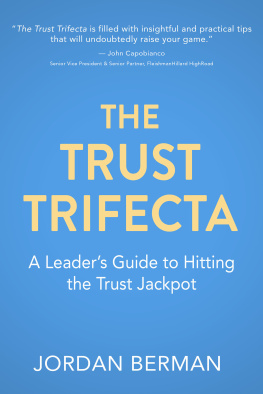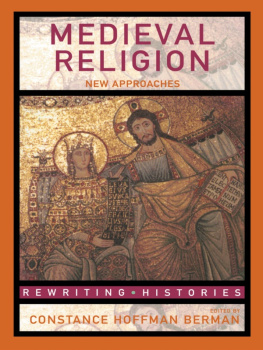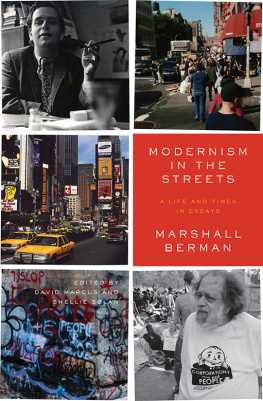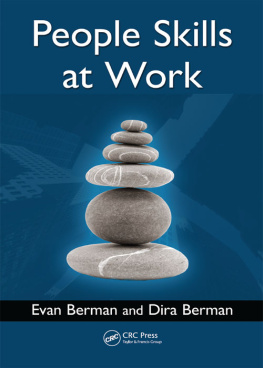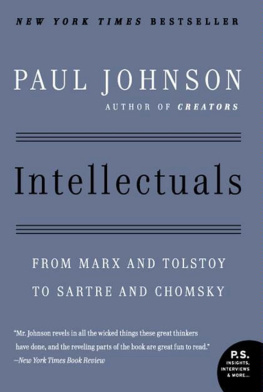Paul Berman - The Flight of the Intellectuals: The Controversy over Islamism and the Press
Here you can read online Paul Berman - The Flight of the Intellectuals: The Controversy over Islamism and the Press full text of the book (entire story) in english for free. Download pdf and epub, get meaning, cover and reviews about this ebook. year: 2010, publisher: Melville House, genre: Politics. Description of the work, (preface) as well as reviews are available. Best literature library LitArk.com created for fans of good reading and offers a wide selection of genres:
Romance novel
Science fiction
Adventure
Detective
Science
History
Home and family
Prose
Art
Politics
Computer
Non-fiction
Religion
Business
Children
Humor
Choose a favorite category and find really read worthwhile books. Enjoy immersion in the world of imagination, feel the emotions of the characters or learn something new for yourself, make an fascinating discovery.
- Book:The Flight of the Intellectuals: The Controversy over Islamism and the Press
- Author:
- Publisher:Melville House
- Genre:
- Year:2010
- Rating:4 / 5
- Favourites:Add to favourites
- Your mark:
- 80
- 1
- 2
- 3
- 4
- 5
The Flight of the Intellectuals: The Controversy over Islamism and the Press: summary, description and annotation
We offer to read an annotation, description, summary or preface (depends on what the author of the book "The Flight of the Intellectuals: The Controversy over Islamism and the Press" wrote himself). If you haven't found the necessary information about the book — write in the comments, we will try to find it.
Paul Berman: author's other books
Who wrote The Flight of the Intellectuals: The Controversy over Islamism and the Press? Find out the surname, the name of the author of the book and a list of all author's works by series.
The Flight of the Intellectuals: The Controversy over Islamism and the Press — read online for free the complete book (whole text) full work
Below is the text of the book, divided by pages. System saving the place of the last page read, allows you to conveniently read the book "The Flight of the Intellectuals: The Controversy over Islamism and the Press" online for free, without having to search again every time where you left off. Put a bookmark, and you can go to the page where you finished reading at any time.
Font size:
Interval:
Bookmark:


1 |
2 |
3 |
4 |
5 |
6 |
7 |
8 |
9 |
To Marty Peretz and Leon Wieseltier:
A few years ago, in the course of a book called Terror and Liberalism, I happened to mention a soon-to-be fashionable and already interesting Islamic philosopher from Switzerland named Tariq Ramadan, whose writings had caught my eye. I devoted a couple of pages to discussing Ramadans ideas, and the couple of pages seemed to me adequate. But then, as time passed, I came to suspect that I had underestimated my theme, and Ramadan was turning out to be far more interesting than my couple of pages had allowed.
The philosopher from Switzerland, I began to think, has become a representative man of our age. Destiny has delivered him to the very spot where half a dozen major conflicts and controversies converge. The man is a collision point. Entire publics project upon him their own ideas. He attracts attention in the intellectual magazines. And the press coverage, some of it, has likewise proved to be all too representative of our momenta coverage animated by earnest good intentions, but, then again, by squeamishness and fear. And by less-than-good intentions. Or so I found myself thinking, as I leafed through the magazines. And I concluded that, out of loyalty to my readers, or out of devotion to the god of lucidity, or merely out of obeisance to the spirit of the times, I ought to say a little more about Tariq Ramadan and his peculiar image in the press.
Marty, you have been presiding over The New Republic for quite a while now, and Leon, in your capacity as the literary editor, you have been presiding over my own contributions to the magazine for nearly as longand, during all this time, your magazine has stood for a grand unwavering principle. This is the principle of complexity. It is the recognition that some things cannot be understood at all if they are not explained in full. Most magazines simplify. Your magazine elaborates. Therefore I came to you with my thoughts.
I wrote a long, intricate, and not-always sweet-tempered essay. You published every pointed word. And, at once, I was struck by a marvelous reality that is sometimes overlooked in our age of giant televisions and mammoth search-engines. The world is full of serious-minded readers, and the readers are perfectly willing to follow the lengthiest and most complicated of arguments, if the argument seems to them apt. People in far corners of the earth read my essay and responded to it variously. Thumbs pointed up, and pointed down. Either way, though, the responses convinced me that, on one issue at least, I was entirely right.
This was in my choice of themes. I had found my way to a central debate of our momentthe debate over Islamist ideas in the Western countries, and over the reluctance of journalists and intellectuals from Western backgrounds to grapple seriously with the Islamist ideas. Then again, the responses to my essay convinced me that, on a number of controversial points (in this present debate, every point, or very nearly, turns out to be controversial), I ought to say still more.
And so, I have said more. I have presented some additional historical details, which I draw from the archival discoveries just now of several talented historians. I have pondered a couple of medieval texts, which bear on our own non-medieval difficulties and which, in any case, have proved to be, in their inscrutability, a delight. I have disentangled ambiguities. I have commented on some admirable personalities of our time, and on the critics who admire them not at all. I have updated the outdated. I have corrected errors. The modest essay that originally appeared in your magazine has, in these several ways, thickened, at last, into a book. And now I press the book, printed and bound, into your hands, inscribed to you.
Paul Berman
February 2010
You have asked me, dear brotherand may Allah decree for you the quest of mans chiefest bliss, make you candidate for the Ascent to the highest height, anoint your vision with the light of Reality, and purge your inward parts from all that is not the Real!you have asked me, I say, to communicate to you the mysteries of the Lights Divine, together with the allusions behind the literal meaning of certain texts.
al-Ghazali
THE PHILOSOPHER AND THE PRESS
Tariq Ramadan is a charismatic and energetic Islamic philosopher in Europe who, during the last fifteen years or so, has become popular and influential among various circles of European Muslimsoriginally in Geneva, where his father founded the Islamic Center in 1961 and where Ramadan grew up; then in Lyon, the French city closest to Switzerland, where Ramadan attracted a following of young people from North African backgrounds; then among French Muslims beyond Lyon; at the Islamic Foundation in Leicester, in England, where he spent a year on a fellowship; among still more scattered Muslim audiences in Western Europe, who listened to his audio recordings and packed his lecture halls, typically with the men and the women sitting demurely in their separate sections; among Muslims in Francophone regions of Africaand outward to the wider world.
Ramadan possesses a special genius for shaping cultural questions according to his own lights and presenting those questions to the general public. He has demonstrated this ability from the start. As early as 1993, at the age of thirty-two, he campaigned in Geneva to cancel an impending production of Voltaires play Fanaticism, or Mahomet the Prophet. The production was canceled, and a star was bornthough Ramadan has argued that he had nothing to do with canceling the play, and to affirm otherwise is a pure lie. Not every battle has gone his way. He taught at the college of Saussure. His colleagues there were disturbed by his arguments in favor of Islamic biology over Darwin. This time, too, Ramadan shaped the debate to his own specification. He insisted that he had never wanted to suppress the existing biology curriculummerely to complement it with an additional point of view. A helpful creationist proposal. But the Darwinians, unlike the Voltaireans, were in no rush to yield.
That was in 1995, and by then Ramadan had already established himself in Lyon, at the Union of Young Muslims and the Tawhid bookstore and publishing house. These were slightly raffish immigrant endeavors, somewhat outside the old and official mainline Muslim organizations in France. Even so, the mainline organizations welcomed the arrival of a brilliant young philosopher. He built alliances. He attended conferences. His op-eds ran in the newspapers. He engaged in debates. Eventually his face appeared on French television and on the covers of glossy magazines, which introduced him to the general public in France, a huge success. And yetthis is the oddity about Tariq Ramadanas his triumphs became ever greater and his thinking more widely known, no consensus whatsoever emerged regarding the nature of his philosophy or its meaning for France or Europe or the world.
Some mainstream journalists in France were drawn to him from the start. The Islam-and-secularism correspondent at Le Monde, full of admiration, plugged him regularly and sometimes adopted his arguments. At Le Monde Diplomatique, Ramadan became a cause, not just a story. The editor lionized him. Politis magazine promoted him. On the activist far left, some of the anti-globalist radicals and the die-hard enemies of McDonalds saw in Ramadan, because of his denunciations of American imperialism and Zionism and his plebian agitations, a tribune of progressive Islam, even if his religious severities grated on left-wing sensibilities. The Trotskyists of the Revolutionary Communist League forged something of an alliance with him. A number of Christian activists regarded him with particular fondness: a worthy partner for inter-religious dialogue. A dike against the flood tides of secular materialism. An inspiration for their own revived spirituality. A religiously motivated social conscience similar to their own, laboring on behalf of the poor and the oppressed. Ramadan might even have seemed, in some peoples eyes, stylishly trendy at one moment or anothera champion of Islam who, because Islam has been so badly demonized, held out a last dim hope for shocking the bourgeoisie. Then again, some of the French experts on Islam likewise found something commendable in him: a thoughtful effort to modernize Islam for a liberal age. The distinguished scholar Olivier Roy, who had no interest in shocking anyone, looked on Ramadan in an admiring light.
Font size:
Interval:
Bookmark:
Similar books «The Flight of the Intellectuals: The Controversy over Islamism and the Press»
Look at similar books to The Flight of the Intellectuals: The Controversy over Islamism and the Press. We have selected literature similar in name and meaning in the hope of providing readers with more options to find new, interesting, not yet read works.
Discussion, reviews of the book The Flight of the Intellectuals: The Controversy over Islamism and the Press and just readers' own opinions. Leave your comments, write what you think about the work, its meaning or the main characters. Specify what exactly you liked and what you didn't like, and why you think so.

